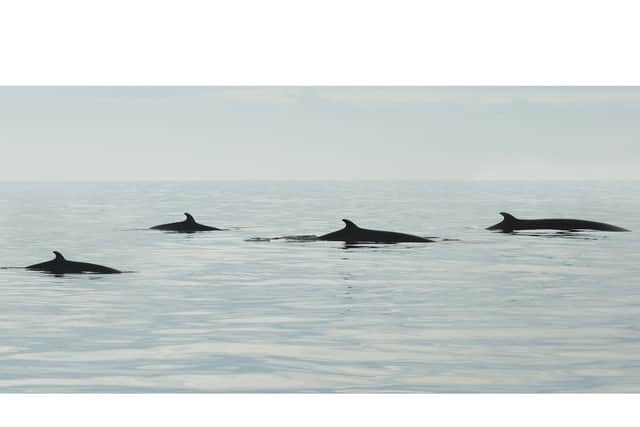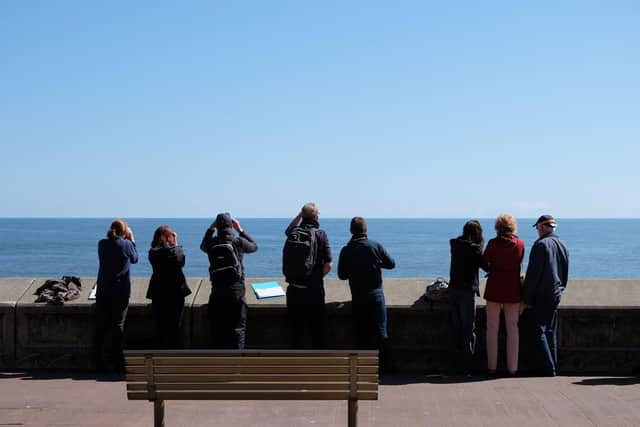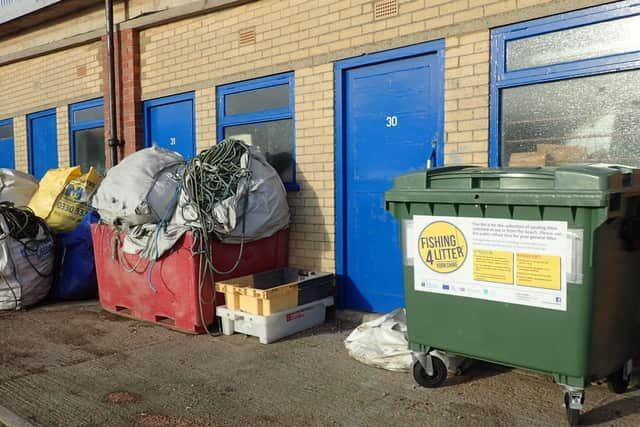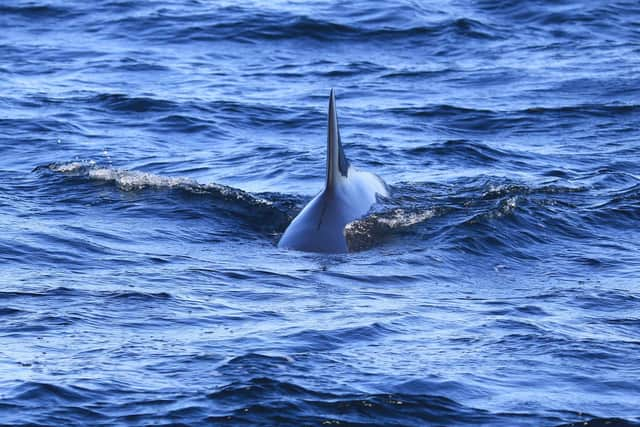Bottlenose dolphins spotted off Yorkshire Coast in 2019 had travelled from Scotland


During the course of the citizen science project, trained volunteers logged 320 individual sightings including minke whales, bottlenose dolphins and harbour porpoise.
A network of 30 volunteers trained by Yorkshire Wildlife Trust and Sea Watch Foundation became the ‘eyes and ears’ of the coast and spent over 330 hours surveying from 30 different locations.
Advertisement
Hide AdAdvertisement
Hide AdPhotographs identified one pod of bottlenose dolphins and showed they’d journeyed from Scotland.


The sighting off Flamborough Head was the furthest south they have been officially identified.
Yorkshire Wildlife Trust researchers accompanied specialist wildlife boat trips logging minke whales feeding off Staithes.
Bex Lynam, North Sea Marine Advocacy Officer for Yorkshire Wildlife Trust, said: “It’s likely the bottlenose dolphins came south following shoals of fish; it’s thrilling to see playful dolphins and ocean giants like whales.
Advertisement
Hide AdAdvertisement
Hide Ad"Ten years ago, seeing a bottlenose dolphin off the Yorkshire coast would have been rare.”


The project is set to continue into 2020 when Yorkshire Wildlife Trust will continue to work with citizen science volunteers to monitor the North Sea.
Bex said: “As successful as the project has been so far, we need to collect more data about how and why dolphins, whales and porpoise (collectively known as cetaceans) are using these waters if we are to better protect them.
"The role of citizen scientists in recording these animals, as well as changes in the marine environment is really important.”
Advertisement
Hide AdAdvertisement
Hide AdYorkshire Wildlife Trust have lead and taken part in several exciting marine projects during 2019.


Back in March, native oysters were re-introduced to the Humber estuary for the first time since the 1950s.
Working in partnership with University of Hull, Yorkshire Wildlife Trust reintroduced the oysters in a sheltered area at Spurn National Nature Reserve where students will be able to monitor growth, water quality, and marine wildlife.
Oysters are nature’s water filters and help clean pollution from estuaries and seas.
Advertisement
Hide AdAdvertisement
Hide AdYorkshire Wildlife Trust’s Fishing 4 Litter project had its best year with a phenomenal 27 tonnes of litter and fishing gear collected by fishermen and deposited in skips and waste points in eight harbours along the Yorkshire Coast.


This project offers 160 fishermen hard-wearing, reusable bags for use at sea which are then emptied ashore – bins and skips are collected by councils in North and East Yorkshire.
This increasing focus on marine work seems to be a national trend.
Joan Edwards, The Wildlife Trusts’ Director of Living Seas, said: “2019 saw a sea-change in people’s attitudes.
Advertisement
Hide AdAdvertisement
Hide Ad"The extent of the nature and climate emergency is becoming increasingly clear and more people than ever are volunteering to be citizen scientists and conducting important surveys or taking action to tackle the profound problems of marine litter and plastic pollution.
"They’ve shown their commitment to healthy seas by supporting The Wildlife Trusts’ campaigns to ensure government policies create more and better protection for marine wildlife and waters around the UK.”